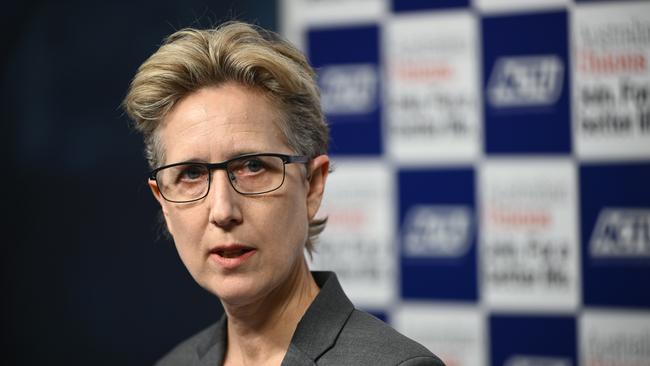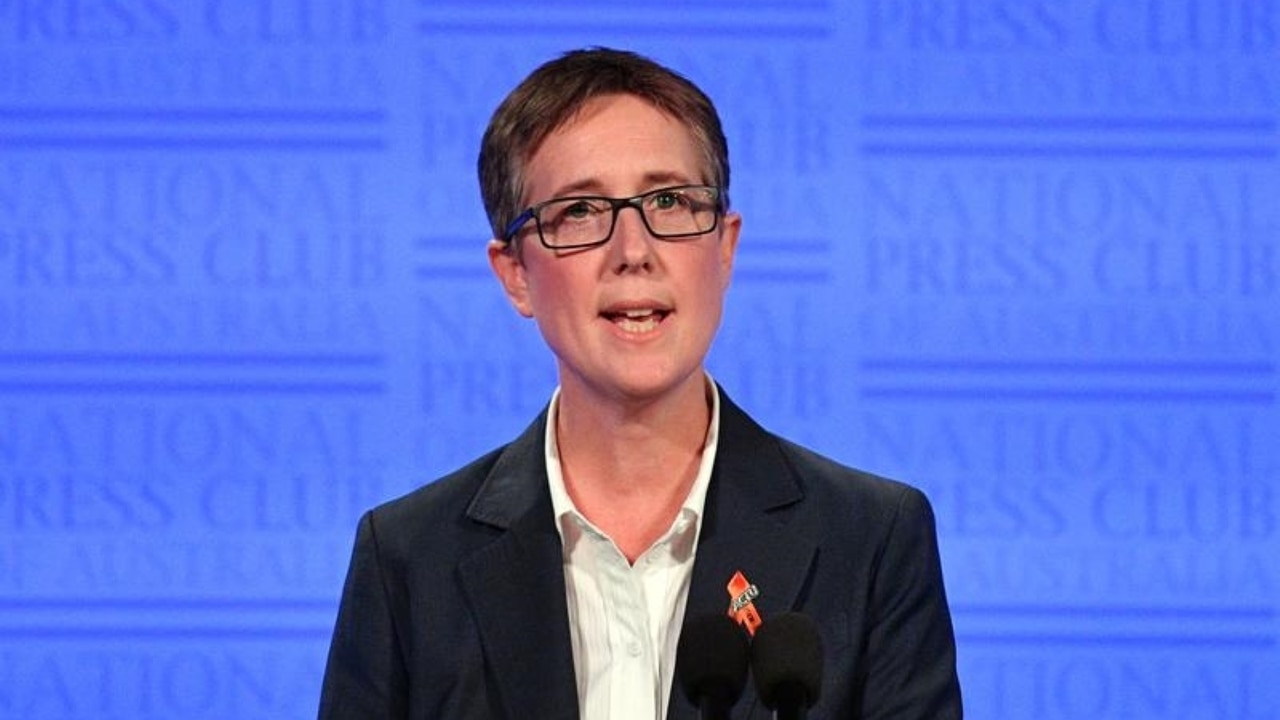ACTU push to widen multi-employer bargaining
The ACTU push for more bargaining power will intensify the coming election battle over workplace relations policy.

The ACTU is pushing for broader union access to multi-employer bargaining, scrapping the need to show majority worker support where an employer opposes an application, and opening the contentious laws to small businesses where they agree, under a pre-election push that intensifies the policy battle over workplace relations.
Increasing pressure on Anthony Albanese to make more pro-union changes to the industrial relations laws, the peak union body is seeking 41 amendments to the legislation but faces pushback from employers who want pro-business changes and warn the laws risk anti-democratic, perverse and one-sided outcomes that unfairly favour unions.
In a submission to the federal government’s review into the Secure Jobs Better Pay legislation, the ACTU said the “escape ramp” for employers wanting to frustrate the collective desire of workers to engage in multi-employer bargaining was too generous, while the small business exemption from the provisions lacked justification.
It said the requirement to demonstrate the majority support of workers for a multi-employer application when opposed by an employer should be scrapped as it placed a considerable administrative burden on unions and employees for little benefit, given that any resultant agreement would also need to be voted on.
Calling for the laws to go beyond franchise business models and capture franchisor-operated stores, the ACTU said multi-employer bargaining should be permitted “irrespective of business size, common interest or similarity in business or operations if they genuinely consent to an authorisation being granted”.

Describing the changes as “common sense ways to improve multi-employer bargaining”, the ACTU also called for greater powers for the Fair Work Commission to deal with sexual harassment applications, increased rights for workers to access flexible work, the insertion of reproductive health as a protected attribute in the Fair Work Act, and the removal of “unintended loopholes” for fixed-term contracts.
In its submission, the Australian Chamber of Commerce and Industry said the current laws should be amended to ensure multi-employer bargaining was by consent only as the existing laws had the potential to force employers to bargain for a multi-enterprise agreement where they did not agree.
According to the ACCI, where negotiations failed, the employers can be subject to mandatory arbitration where each term of the proposed agreement that is not agreed will be no less favourable than the previous enterprise agreement, irrespective of a “global assessment” of the better off overall test.
It said the laws had created multiple undemocratic circumstances where a union was not required to demonstrate a majority of employees to be covered by a proposed enterprise agreement were supportive of bargaining.
“The changes also allow for employers to be ‘roped in’ to an existing multi-enterprise agreement that they were not involved in bargaining for, thereby creating the perverse outcome wherein businesses can be subjected to terms and conditions that they did not negotiate for, had no say in and cannot possibly be commensurate to their unique workplace circumstances,” the chamber said.

It also hit out at the intractable bargaining provisions for creating a bargaining environment that is “entirely one-sided and contrary to the principle of good faith bargaining, fundamentally re-altering the bargaining landscape in Australia for the worse and definitively disincentivising give-and-take negotiations”.
In its submission, the ACTU said the laws had generated $6.3bn in economy-wide wages growth in the past year, with an average worker covered by an enterprise agreement more than $380 better off annually. The changes had lifted overall wages growth by about 0.5 per cent, as the number of workers covered by collective agreement rose from 1.8 million to 2.2 million in less than two years.
According to the ACTU analysis, a one percentage point increase in collective bargaining coverage nationally is associated with a 0.15 percentage point in annual wages growth. To date, coverage has lifted by 3.4 percentage points, equating to a 0.5 percentage point lift in economy-wide wages, totalling $6.3bn.
A worker covered by a collective agreement on an average wage of $77,000 is over $380 better off a year. Before the legislation was introduced in late 2022, about 270 employees each day were included in applications for new collective agreements, and the number has more than doubled to 650.
Annual wage growth has been 3.7 per cent on average since the change of government in 2022, compared to 2.1 per cent under previous Coalition governments.
Limits on the use of fixed-term contracts has resulted in a 14.7 per cent reduction in their use, resulting in tens of thousands of workers moving to more permanent jobs.
ACTU secretary Sally McManus said the laws were delivering real wage rises, with the $380 net benefit potentially being the difference between workers meeting household expenses or going backwards.
“Workers’ pay packets still have a long way to recover, but early signs are that the reforms are working and will only have a growing impact,” Ms McManus said.
“Employer groups claimed these reforms would destroy jobs and lead to lower wages. This has not happened; those claims have proven to be baseless.
“The big business-backed Coalition is promising to unwind these workplace reforms if they win the election. It would mean these fair and reasonable wage increases would be taken away.”







To join the conversation, please log in. Don't have an account? Register
Join the conversation, you are commenting as Logout